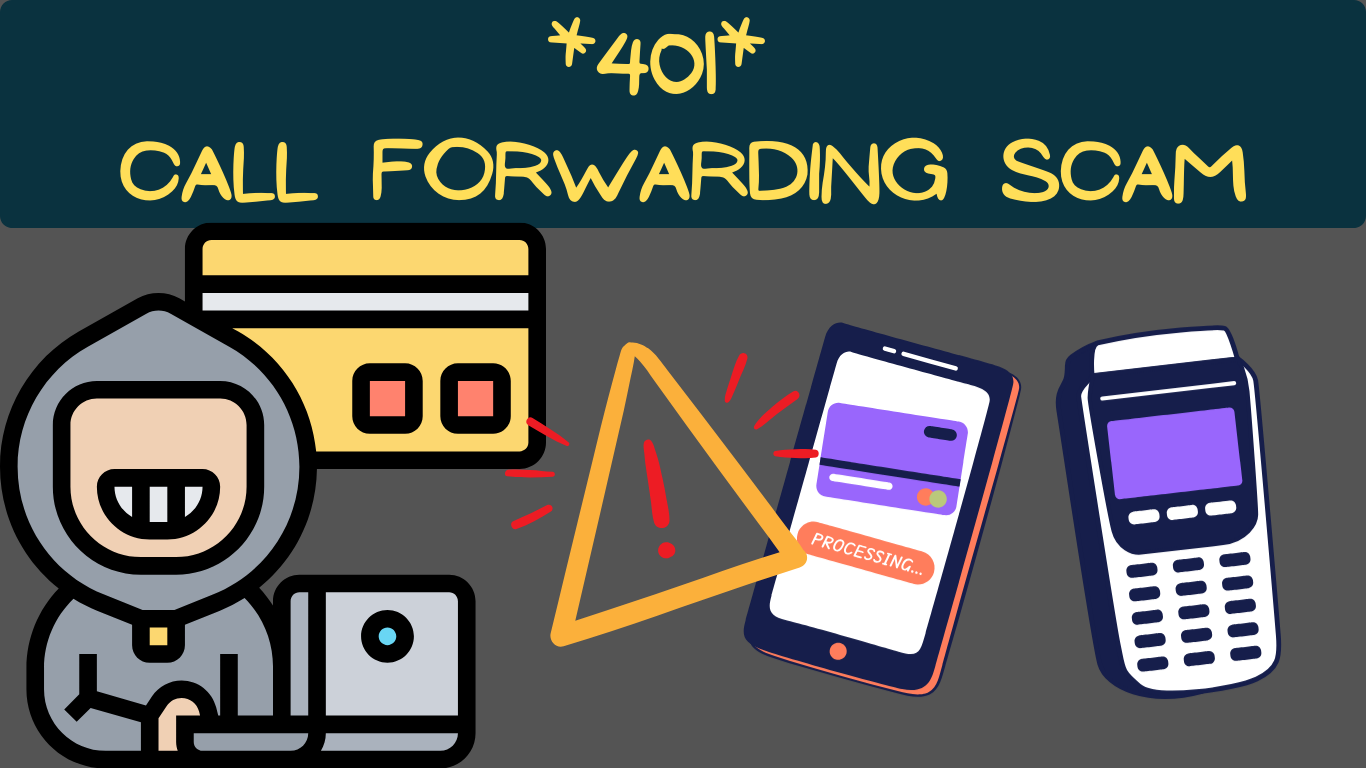*401* Call Forwarding Scam: In the digital age, cybercriminals are constantly devising new schemes to defraud unsuspecting users and compromise their financial security and privacy. One such fraudulent operation that has been on the rise is the *401* Call Forwarding Scam, which specifically targets telecom users of major providers like Jio and Airtel. In this article, we will delve into the details of this scam, how it works, and most importantly, how you can protect yourself from falling victim to it.
What Is the *401* Call Forwarding Scam?
The *401* Call Forwarding Scam is a cunning ruse employed by scammers who pose as customer service representatives from mobile and internet service providers. Their ultimate goal is to exploit unsuspecting individuals by tricking them into activating call forwarding to the scammer’s number. Here’s how the scam unfolds:
1. The Initial Contact: Scammers initiate contact with their potential victims, often claiming to address issues related to mobile internet, account security, or SIM cards. They may use various pretexts to establish trust with their targets.
2. The Quick Fix: Once trust is established, scammers offer a seemingly quick solution to the supposed problem. They instruct the victim to dial a specific number, such as *401*, which will activate call forwarding to the scammer’s number.
3. The Consequences: Once the victim falls for the scam and dials the designated number, their calls are secretly forwarded to the scammer. This grants the fraudster access to sensitive information, such as voice OTPs, bank details, and messaging apps, all while the victim remains unaware.
Protecting Yourself from the 401# Call Forwarding Scam
Now that you are aware of the *401* Call Forwarding Scam, it’s essential to take steps to safeguard your personal and financial information. Here are some actionable tips to help you stay safe from this scam:
1. Strengthen Your Phone’s Security: Protect your device with passcodes or biometric authentication methods to make unauthorized access as difficult as possible.
2. Be Cautious with Unknown Codes and Messages: Never dial codes or respond to text messages from unknown sources, regardless of how convincing they may appear.
3. Guard Sensitive Information: Never share sensitive data like OTPs, PINs, or passwords with anyone. Legitimate telecom providers like Airtel and Jio will never request such information.
4. Stay Alert and Trust Your Instincts: Before taking any action in response to a call, analyze the caller’s tone and intentions. If something feels off, trust your instincts and exercise caution.
5. Use Caller Verification Apps: Consider installing caller verification apps like Truecaller. These apps can help you verify the identity of the caller and allow you to disconnect calls from potential scammers.
6. Contact Your Telecom Provider: If you suspect you have become a target of the *401* Call Forwarding Scam, get in touch with your telecom provider, such as Jio or Airtel, and request the removal of call forwarding from your number to protect your privacy.
In conclusion, being informed and vigilant is your best defense against scams like the *401* Call Forwarding Scam. By following the steps outlined in this article, you can help protect your personal and financial information from falling into the wrong hands. Stay safe online and remain one step ahead of cybercriminals.


